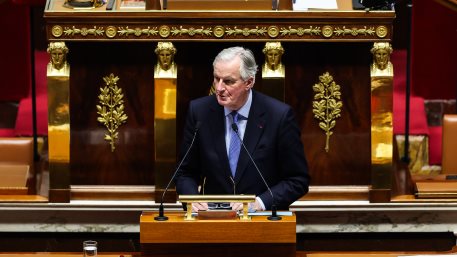
The upcoming week is filled with high-impact events that will significantly influence the global financial markets. Investors, businesses, and analysts are keenly focused on a series of economic releases and political developments that will provide critical insights into monetary policy, inflation trends, and economic growth. From Donald Trump’s inauguration to the World Economic Forum (WEF) meetings in Davos, here are the most important events to watch out for.
1. Donald Trump’s Inauguration – Monday, January 20
Donald Trump will be inaugurated as President of the United States on Monday, January 20. While the event is primarily political, markets are watching closely due to Trump's anticipated policies, which may have both immediate and long-term economic implications. Investors expect volatility in sectors such as healthcare, energy, and technology, especially given Trump’s stance on deregulation, trade policies, and tax reforms. Any announcements related to fiscal stimulus or tariffs could move markets significantly.
2. Canada’s Consumer Price Index (CPI) Release – Tuesday, January 21
On Tuesday, January 21, the Canadian Consumer Price Index (CPI) data for December will be released, with expectations that the annual inflation rate will come in at 2.5%. The CPI report is a critical indicator of inflation and could influence the Bank of Canada’s monetary policy decisions. A stronger-than-expected CPI reading could spark concerns about higher inflation, putting pressure on policymakers to consider interest rate adjustments. The market will also watch the Canadian dollar, as inflation data could impact currency value.
3. ECB President Christine Lagarde Speaks – Wednesday, January 22
On Wednesday afternoon, European Central Bank (ECB) President Christine Lagarde will deliver a highly anticipated speech. Markets will scrutinize her comments for any indications regarding the ECB’s future monetary policy direction. With inflation in the Eurozone still above target, investors are particularly interested in any hints of further rate adjustments. Lagarde’s tone and language could influence market sentiment in the Eurozone and beyond, especially for the euro and European equities.
4. Bank of Japan Interest Rate Decision – Friday, January 24
The Bank of Japan (BOJ) will announce its interest rate decision on Friday, January 24. There is a strong likelihood (90%) that the BOJ will raise rates by 25 basis points, marking the largest rate hike in over 17 years. With inflation in Japan creeping higher, the central bank is under pressure to tighten monetary policy. A rate hike could significantly impact the Japanese yen, bond yields, and the stock market. Investors will also look for comments from BOJ Governor Haruhiko Kuroda regarding future rate hikes and inflation forecasts.
5. US, Eurozone, and UK Manufacturing and Services PMIs – Friday, January 24
Also on Friday, January 24, key Purchasing Managers’ Index (PMI) data for the manufacturing and services sectors in the US, Eurozone, and the UK will be released. These reports are essential for gauging economic activity in these regions. A strong PMI reading could signal economic resilience, while a weaker number might point to slowing growth. Investors will closely monitor these numbers to assess the health of the global economy and guide their investment decisions in stocks, bonds, and currencies.
6. World Economic Forum (WEF) Annual Meetings – All Week
The World Economic Forum (WEF) annual meetings in Davos will also take place this entire week. This prestigious gathering of political, business, and financial leaders will provide valuable insights into global economic trends and policy directions. Markets are particularly interested in discussions surrounding climate change, global trade tensions, and the outlook for major economies. Statements from key leaders and influential policymakers could lead to shifts in market sentiment, especially in sectors like technology, energy, and finance.
Conclusion
With a packed week of significant events, including Donald Trump’s inauguration, central bank decisions, and critical economic data, global markets are set for a volatile ride. Investors should keep a close watch on these key releases to better navigate potential market movements and make informed investment decisions.




















